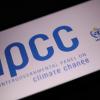

AR6 Scenario Explorer and Database

Keywan Riahi
Program Director and Principal Research Scholar (ECE); Principal Research Scholar (IACC, PM, S3, TISS)

Volker Krey
Research Group Leader and Principal Research Scholar (IACC); Principal Research Scholar (S3)

Edward Byers
Senior Research Scholar (IACC, S3, ICI)